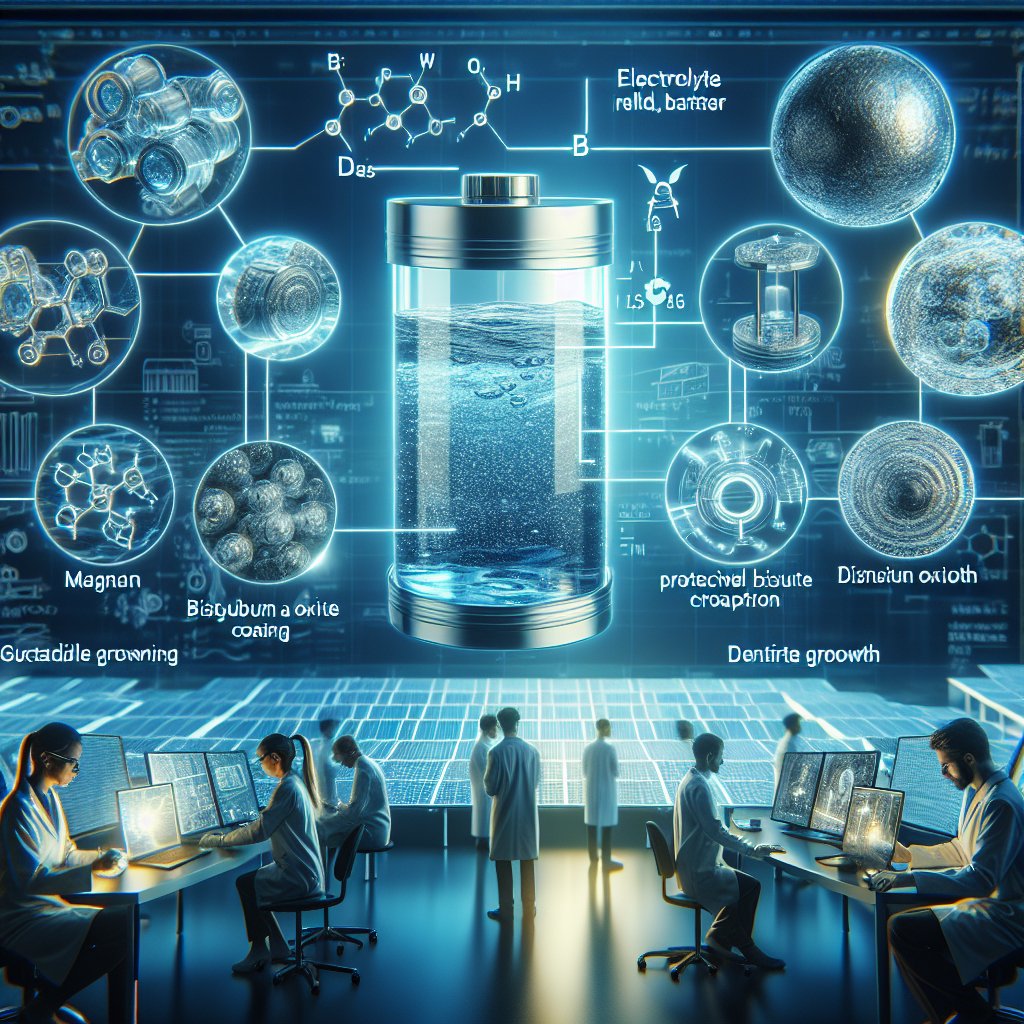Image created by AI
Breakthrough in Battery Technology: RMIT Develops Safe and Recyclable 'Water Batteries'
In a transformative leap for energy storage technologies, researchers from RMIT University, together with global collaborators, have engineered groundbreaking 'water batteries' that provide a safer and more sustainable alternative to prevalent lithium-ion batteries. Leading the charge in aqueous metal-ion batteries, these innovative storage solutions stand at the forefront, overcoming the safety pitfalls of their lithium-based counterparts.
Led by Distinguished Professor Tianyi Ma, the RMIT team focused on addressing the inherent risks associated with conventional lithium-ion batteries which, while prevalent, pose concerns due to the volatile materials they contain. These issues restrict their use, particularly in large-scale grid energy storage applications where safety cannot be compromised. Water batteries mitigate these concerns by utilizing water as the electrolyte, eliminating the risk of fires or explosions.
As a testament to sustainable practice, these batteries also address another critical aspect that poses a global challenge—the end-of-life disposal. According to Ma, these recyclable batteries can be safely disassembled, and their materials reused or recycled, paving the way for a circular economy within the energy sector.
Advancements in the manufacturing process are a cornerstone of the water batteries' design, with a spotlight on simplicity and scalability. The team leverages readily available materials like magnesium and zinc, known for their abundance, cost-effectiveness, and reduced environmental impact.
The RMIT researchers broke new ground in their latest study published in "Advanced Materials," where they tackled a significant hurdle in battery technology: dendrite growth. Through a protective bismuth and its oxide coating, the team managed to inhibit these threatening metallic formations, thereby substantially extending the battery's lifespan and bringing its durability in line with commercial lithium-ion batteries.
This development not only signifies a match in longevity but also showcases a successful integration with solar panels, indicating a robust and stable solution for renewable energy storage. These batteries are advancing closer to lithium-ion technology in terms of energy density, which is a critical factor in energy storage applications where space efficiency is crucial. The team achieved a remarkable energy density of 75 Wh kg-1, constituting up to 30% of that boasted by the latest Tesla car batteries—a milestone detailed in their research published in "Small Structures."
Looking forward, the team aims to further escalate the energy density by exploring innovative nano-materials for electrode manufacturing, with a strong inclination towards magnesium-ion water batteries. This choice is strategic; magnesium's lightweight attribute and high potential energy density position it as a contender for the replacement of lead-acid batteries in the near term, with a longer-term vision of possibly replacing lithium-ion batteries over the next 5 to 10 years.
Professor Ma envisions these batteries as pivotal for large-scale operations such as grid storage and renewable energy sources integration, where the non-flammable nature of the technology translates into enhanced safety. As the batteries evolve, a spectrum of smaller scale applications arises, including home energy solutions and portable electronics.
The evolution of these water batteries hasn't occurred in isolation. They are a product of collaborative efforts under an ARC Linkage project and have garnered support from the government and engaged industry partners like GrapheneX, a Sydney-based technological trailblazer. With such multi-faceted backing, the team at RMIT is continuously refining their water battery solutions, promising an electrifying future for energy storage.










